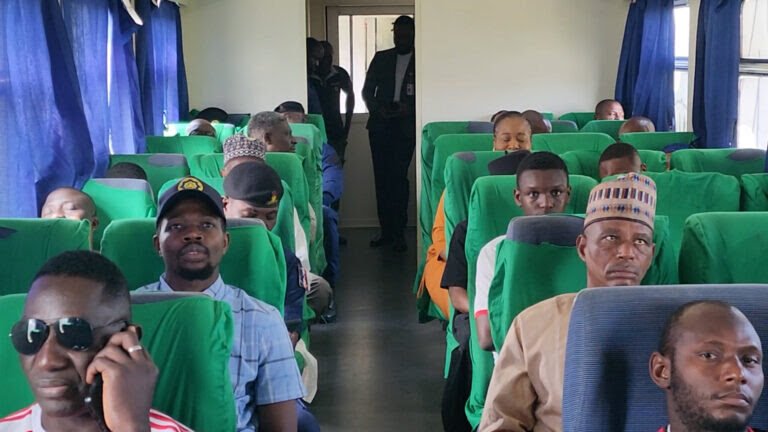THE Abuja–Kaduna Train Service (AKTS) officially resumed operations on Wednesday, October 1, 2025, after weeks of intensive inspections, rigorous safety checks, and staff retraining by the Nigerian Railway Corporation (NRC).
News Point Nigeria reports that the first train of the day departed from Idu Station in Abuja, made its scheduled stop at Kubwa to pick up passengers, and arrived successfully at Rigasa Station in Kaduna. A return trip to Abuja was also completed, marking the full restoration of passenger operations along the corridor.
Confirming the development, the NRC Chief Public Relations Officer, Callistus Unyimadu, issued a statement on behalf of the corporation’s management.
In a symbolic move to reassure passengers of the safety and efficiency of the service, the NRC Managing Director/Chief Executive Officer, Dr. Kayode Opeifa, personally joined passengers on the resumption ride.
Addressing journalists at Rigasa Station after the journey, Dr. Opeifa expressed gratitude to God for a smooth resumption and described the reopening as a milestone in Nigeria’s quest to modernise its transport sector.
He underscored the critical role of rail transport in fostering national unity, regional integration, and economic development. According to him, the administration of President Bola Ahmed Tinubu, GCFR, has continued to invest massively in railway infrastructure, with the AKTS remaining one of the flagship services.
“Our commitment is clear: to restore public confidence, optimise our national rail assets, complete ongoing projects, rehabilitate all serviceable rolling stock, expand services, and improve customer experience. We are determined to modernise NRC operations and achieve world-class efficiency,” Opeifa said.
Highlighting reforms under his leadership, the NRC boss disclosed that a new Customer Service Department has been established to promptly address passenger concerns and complaints, ensuring smoother and friendlier service delivery.
On safety, Dr. Opeifa reassured Nigerians of the corporation’s “unwavering commitment” to passenger and staff welfare.
He confirmed that in addition to the visible presence of armed police and military personnel along the corridor and within stations, discreet but effective security measures had also been deployed to prevent threats and ensure safety.
Reiterating his long-term vision, Dr. Opeifa said his administration is working to reposition NRC as a modern, passenger-friendly service provider capable of driving socio-economic growth through safe, efficient, and sustainable rail transport nationwide.
“The Abuja–Kaduna Train Service is more than just a transport corridor—it is a symbol of resilience, recovery, and Nigeria’s determination to achieve progress,” he added.







